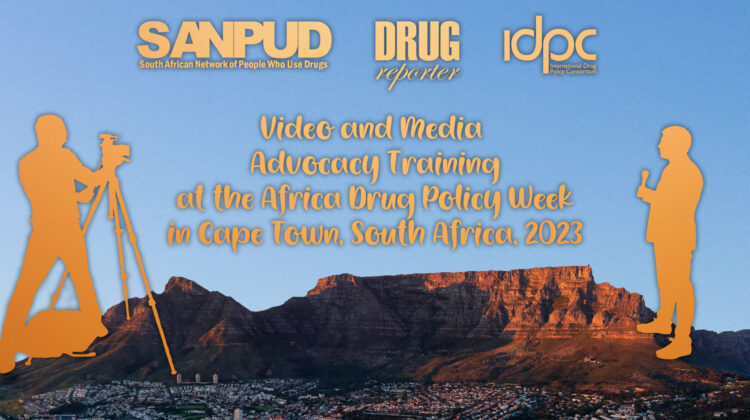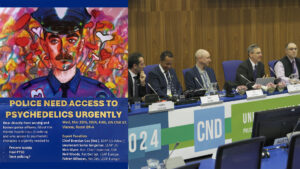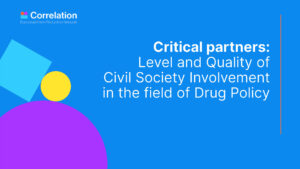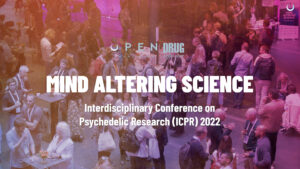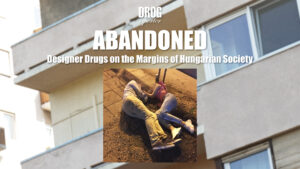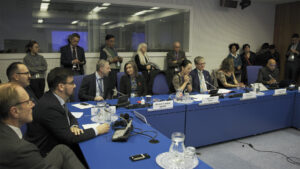Are you a drug policy reformer and harm reduction activist in Africa, who wants to make videos for change and learn to communicate with the media better? Would you like to take part at the Africa Drug Policy Week as well? This application is for you then! Apply now to take part in a 5-day Video and Media Training (9-13 August), and then use your newly acquired skills during the additional 3 days of the Africa Drug Policy Week (15-17 August) – all in Cape Town, South Africa.
Who are we looking for?
The workshop targets drug policy reform, harm reduction and community activists who seek to build their campaigning and communications skills, are passionate about video-making, and want to build skills in pre-production, filming and post-production. Activists who are persons who use drugs are especially welcome!
We aim to train 10 activists.
Selection decision will be based on:
- Understanding of harm reduction/drug policy reform and its human rights dimensions;
- Free capacities to make videos (i.e. preferable not executives or senior staff members who have no time/capacity to make movies);
- Fluency in English (we apologise that translation is not available for this training);
- Good computer and Internet use skills;
- Good communication skills (ability to make reports, give interviews in English);
- Good working relationship with harm reduction/drug policy organisations from the country;
- Commitment to make videos about drug policy/harm reduction in the longer run;
- Commitment to produce at least one video, filmed at the Africa Drug Policy Week;
- Access to basic equipment (at least an advanced phone with video recording capabilities and a computer capable of editing the videos).
The final selection will be made together by the Rights Reporter Foundation (RRF), the South African Network of People who Use Drugs (SANPUD) and International Drug Policy Consortium (IDPC).
The organisers may request a Zoom call with applicants to finalise the selection process.
About the Training
It is our strategic goal at the Rights Reporter Foundation (Drugreporter) to train activists in effectively communicating with video, to influence people’s thinking and public policies, and to build vibrant and tolerant communities that value human rights.
Members of the Rights Reporter Foundation have been training activists in video advocacy and working with the media since 2009. We have held 2 to 5 day video advocacy training for more than a hundred drug policy, harm reduction, and human rights activists from around the world. We have successfully held training sessions in Austria, Budapest, Pécs, Bangkok, Kyiv, Mexico City, Jakarta, Skopje, and Wellington (New Zealand).
The International Drug Policy Consortium IDPC and the Rights Reporter Foundation – through the Harm Reduction Consortium, funded by the Robert Carr Fund (RCNF) – have planned a series of video advocacy and media training sessions for drug policy and harm reduction activists in Asia, Africa and South America. In 2019 the RRF successfully completed the training of 10 community activists in Asia, arriving from India, Indonesia, Lebanon, Malaysia, The Philippines, Myanmar, Malaysia and Nepal. In 2020 due to the Covid 19 pandemic, we had to hold one of the training events online. In 2023 we finally have the opportunity to train harm reduction and drug policy activists in Africa.
The training will be held in Cape Town, South Africa, prior to the Africa Drug Policy Week. After the training, participants of the training will stay for the Drug Policy Week, to use their newly acquired skills, and make video reports of the event. Upon returning home, the trainees will edit their footage that they filmed at the Drug Policy Week, and will continue using video for change in their own activism.
Pictures of the Video Advocacy Training in Bangkok, 2019.
Part 1. Video Advocacy Training
Timeframe: 9-12 August, 2023
Trainer: István Gábor Takács, RRF
The 4 days long video advocacy training covers the whole spectrum of video advocacy, including video advocacy theory, camera handling, interview techniques, editing, and distribution. The video advocacy training consists of 4 major elements.
Day 1. Pre-production: Participants learn how to make plans for video production, how to think about their strategy, their objective, message and audience, how to find the right story and how to deal with security and consent. They watch examples of video advocacy and we analyse them together. Production: Participants learn about the necessary equipment, they learn the operation of the photo and video camera, how to frame and compose their shots, and how to conduct interviews. They practice interviewing on each other. Participants use their own cameras or smartphones.
Day 2. Production: Participants break into 4-5 groups and visit sites in the Coty where they practice interviewing. After the interviews they film B-rolls in the city.
Day 3 and 4. Post-production: Participants learn editing by working on their own footage. We teach the use of the Adobe Premiere Pro CC editing software, or Davinci Resolve, based on the assessment of needs during the selection process. Distribution: Participants learn about how to distribute their work effectively.
Part 2. Media Training
Timeframe: 13 August, 2023
Trainer: Péter Sárosi, RRF
During the 1 day long media training, participants learn to use traditional methods of communicating with the print and broadcast media, such as creating strong messages, understanding what is interesting for the media, writing press releases, organising press conferences, giving television interviews.
The first part of the workshop is an introduction to media communication for NGOs, refuting common myths and false preconceptions about the media and outlining the structure, length and content of press releases and press conferences, how to organise communication within an organisation, tips about TV interviews, ethical issues and methods to evaluate the success of your communication.
In the second, more practical part of the workshop participants can practice what they have learnt. They break up into smaller groups which have to build a media campaign concept, write press release and give test TV interviews to a hypothetical evening news, played by our video/reporter crew. In the third, plenary part of the workshop we analyze the campaign plans, press releases and TV interviews together and discuss lessons learnt.
All participants of the video training take part on this day, and additional persons from Cape Town will join as well.
The media training is followed by a one day break on the 14th, with the opening of the Africa Drug Policy Week happening on the evening of that day.
Part 3. Africa Drug Policy Week
Timeframe: 15-17 August 2023
This annual event brings together International Drug Policy experts, National Policy Makers, Government officials, Civil Society Organisations, Advocates, Project Funders and People who use Drugs community members all in one space. This year promises even more prominent speakers, high level discussions, interactive Panels and plenty of time to engage with one another and embrace a knowledge sharing and learning experience. This year, for the first time, we are expanding SA Drug Policy week from a Southern African focus to a broader African Policy event. The conference will run from the evening of the 14th to the 17th August and will be hosted in Cape Town, South Africa. This event is made possible through the generous support of many local and international organisations and hosted annually through ongoing collaborative efforts between SANPUD, TB HIV Care and SA Drug Policy in South Africa.
Total timeframe
8-18 August, 2023.
Logistics
The training will be held in Cape Town, South Africa, at the DoubleTree by Hilton Cape Town Upper Eastside. Logistics, including travel and visa costs will be organized and financed by the organisers, from the funding provided by the Robert Carr Civil Society Network Fund. During the training we will make travel arrangements and provide accommodation, breakfast and lunch for the participants.
IMPORTANT! Due to the length of the training and our limited budget, we are sorry that we CANNOT cover:
* Dinners (we only provide lunch and breakfast, and only one common dinner during the event).
* Travel to and from the airport in their country of residence.
* The payment of travel to and from the Visa Processing office in their country of residence.
* The cost of any vaccinations, immunisations or health insurance required prior to travel to South Africa. (Please note, however, that we strongly encourage participants to ensure they have these in place).
* Stipends or per diem during the event.
* Travel insurance for participants. We strongly recommend that participants confirm with their medical aid providers that they are covered for international travel, or that they take out their own short term travel cover for the duration of their trip to SA.
Trainers
Video Advocacy: István Gábor Takács is a human rights activist, videographer and trainer. He ran the Video Advocacy Program of the Hungarian Civil Liberties Union between 2007-2015. He worked as a needle exchange program counselor for 5 years. He is author of several articles on harm reduction and cameraman, editor, director and co-director of more than 700 online videos, among them longer documentaries, such as “Kostya Proletarsky” (2020), “Taking Back What’s Ours: An Oral History of the Movement of People who Use Drugs” (2020) ”A Day in the Life: The World of Humans Who Use Drugs” (2016), “Without Rights” (2009), “Without a Chance” (2014), “Room in the 8th District” (2014) and “The Invisible” (2011). Since 2016 he works at the Rights Reporter Foundation, where besides producing films, he is training activists in video advocacy.
Media: Péter Sárosi is a human rights activist and drug policy expert, the founder and editor of the Drugreporter website since 2004, the author of countless articles, co-author of books and director of films about harm reduction and drug policy reform. He was the Director of the Drug Policy Program at the Hungarian Civil Liberties Union between 2004 and 2015. He is experienced in working at international drug policy forums such as the Commission on Narcotic Drugs. He was twice elected to the Core Group of the EU Civil Society Forum on Drugs. He is advisory board member of the Eurasian Harm Reduction Association (EHRA) and the Steering Committee member of the Correlation European Harm Reduction Network. He was representing the Hungarian Harm Reduction Network at the government’s drug advisory body in Hungary between 2007 and 2015. As a member of the Drugreporter video advocacy team, he has produced videos about drug policy issues in a number of countries. These videos are now part of a unique online drug policy video library.
Organisers and financing
The training is financed by the Robert Carr Fund, via the Harm Reduction Consortium, and is organised by the Rights Reporter Foundation in close cooperation with IDPC, TB/HIV Care and SANPUD.
Apply here!
Click here to fill out the online application form before 23:00h on July 3 2023.
If you have any questions about the Workshop or the application process, please do not hesitate to write to us at takacsistvangabor@rightsreporter.net.
